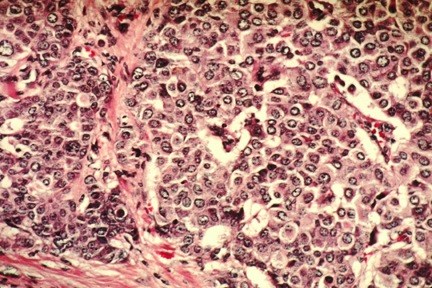|
By Alex Bernstein
In the late 1950’s, few doctors thought to take blood and urine samples for future use in long-term studies. Yet, that is exactly what Jacob Yerushalmy, a UC Berkeley biostatistics professor, began to do. These early blood samples were carefully frozen and stored with the hope to aid researchers in the future. Over the years, similar samples were collected from the daughters and granddaughters of the original patients. Today, all of these samples are stored at the university’s brand new biorespitory campus where eager scientists enjoy unprecedented research opportunities. Nina Holland, a professor at the school and the director of the biorespitory center, points out just how important this study is. She explains, “The fact that you can go back 50 years is remarkable. This is probably one of the most valuable studies.” Initiated in 1959, the Child Health and Development Studies project has closely monitored the health of over 15,000 daughters, mothers, and granddaughters in the San Francisco Bay Area in an attempt to determine the influence of environmental exposure on breast cancer incidence. It has long been suggested that epigenetic factors, such as alcohol and tobacco, play a significant role in breast cancer development in addition to one’s genetic predisposition. Yet, the shocking findings of this five-decade study reveal that the connection between the environment and breast cancer development is even more profound than was thought before. Although a startling one in eight US women develops breast cancer over the course of her life, disturbingly little is known about the causes of the disease as genetic factors are estimated to only account for about 5-10% of cases. The unique scope and length of the study is beginning to reveal important and unexpected results. Early findings are indicating that a child’s exposure to various chemicals while still in the womb can play a much larger role in her development and risk for cancer than was previously considered. Already, the 100,000 blood samples are beginning to provide insight into the fundamental paradox of breast cancer: Why do so many women without any apparent genetic predisposition develop breast cancer? Researchers such as project director Barbara Cohn theorize that the answer lies in the detected environmental pollutants (many of which have already been banned) that were found in the blood sample. The theory is that early exposure to estrogen and other hormone impersonating chemicals increases the chance of breast cancer development. Such a hypothesis appears to be confirmed by the 50-year study as the risk of breast cancer tripled for women who were exposed to various PCB’s (polychlorinated biphenyl, known to be persistent organic pollutants). Reproductive toxicologist Suzanne Fenton explains that this link has yet to be identified in previous studies because “they measured levels of chemicals in women later in life, after they were diagnosed with cancer, not during periods when the breast is most susceptible.” Although thorough research has yet to be completed, these early findings have already begun to make a big splash in the research community. By the time this study is complete, not only will we know that much more about breast cancer, but also about the importance and impacts of our everyday environment.
0 Comments
Leave a Reply. |
Categories
All
Archives
April 2024
|

